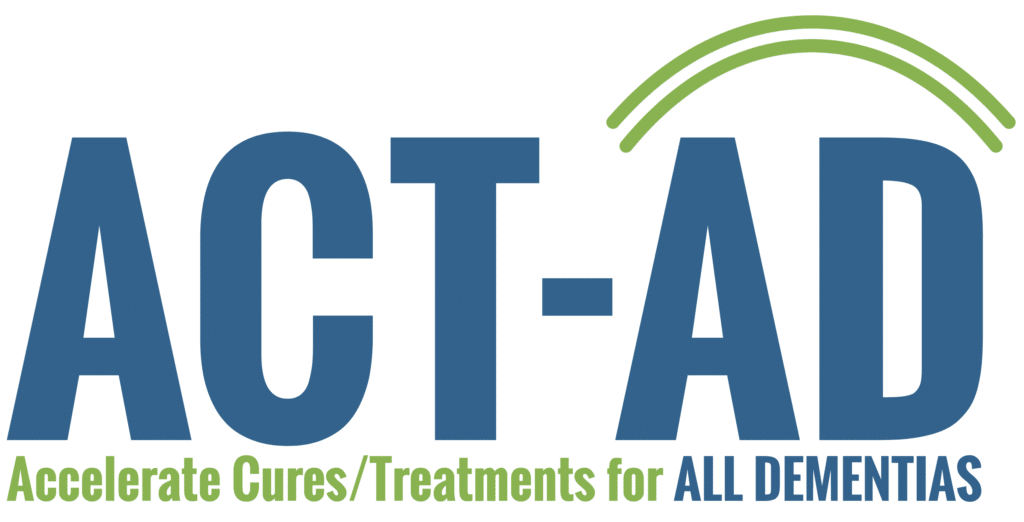Webinar: Financing the Cure: Exploring the Ecosystem of Alzheimer’s Disease Research Funding
The Accelerate Cures/Treatments for All Dementias (ACT-AD) held a webinar on July 13, 2021 for an in-depth…
more.
The mission of Accelerate Cures/Treatments for All Dementias (ACT-AD) is to support accelerating research and approval for transformational therapies to modify the progression, or relieve symptoms, of all dementias.
ACT-AD brings together companies, advocacy groups, and researchers to interact with the FDA outside of an IND to explore challenges and themes in ADRD clinical development. ACT-AD also provides an overview of research priorities for the NIA and coverage and reimbursement issues for new AD medical products. ACT-AD translates complex regulatory issues to a wide range of stakeholders, including patients and caregivers, to create more engagement on issues that would otherwise be restricted to regulators and companies.
Program objectives are:
Every year the FDA and ACT-AD convene a roundtable meeting to explore the current therapeutic and research landscape for Alzheimer’s disease and related dementias. Sessions address pertinent issues in the field of dementia research and include presentations from NIH/NIA funded investigators and private industry.
The 17th Annual FDA/ACT-AD Allies meeting will be held November 7, 2024 at the Marriott Marquis, 901 Massachusetts Ave., NW, Washington, DC. Attendance is by invitation only.
The 16th Annual FDA/ACT-AD Allies Meeting was held November 16, 2023. Download a PDF summary of the meeting.
The 15th Annual FDA/ACT-AD Allies Meeting was held November 16, 2022. Download a PDF summary of the meeting.
The 12th Annual FDA/ACT-AD Allies Meeting was held November 2019. Download a PDF summary of the meeting.

The Accelerate Cures/Treatments for All Dementias (ACT-AD) held a webinar on July 13, 2021 for an in-depth…
more.
On December 7, 2020, ACT-AD held a webinar on cutting-edge research on Lewy Body dementia (LBD). The webinar…
more.
The Accelerate Cure/Treatments for Alzheimer’s Disease (ACT-AD) Coalition held an educational webinar on April 18, 2019 on…
more.To learn more about ACT-AD and the annual meeting, please contact Adina Lasser, Manager of Public Policy, at [email protected]; and/or Beth Mathews-Bradshaw, Vice President of Patient Engagement and Research, at bmbrad[email protected].
To learn more about sponsoring ACT-AD, please contact Sarah Delgado, Vice President of Development, at [email protected].